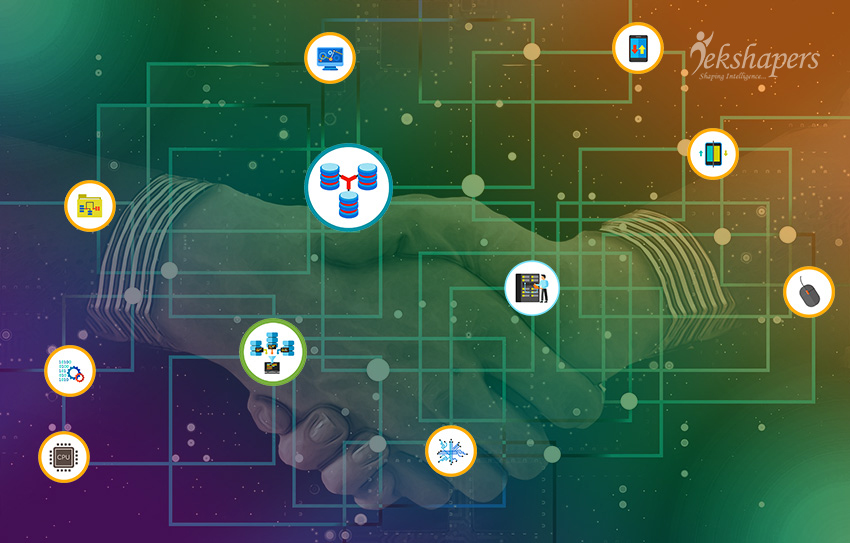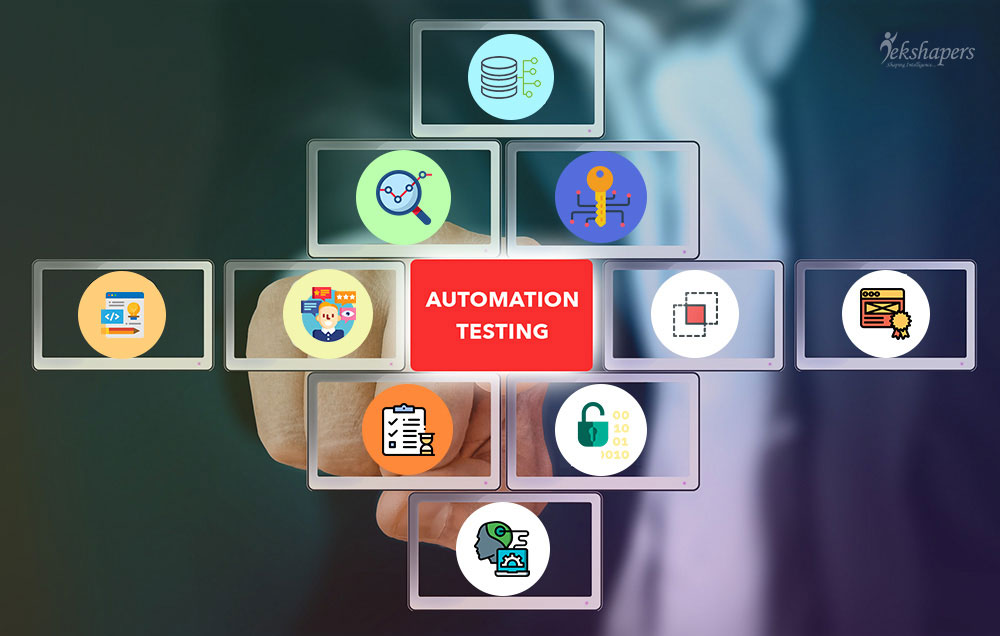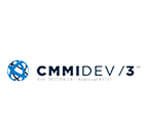Impact of Artificial Intelligence in Healthcare Industry

Artificial intelligence is poised for becoming a transformational force in the healthcare sector. When it comes to us, especially in the matter of life and death, the artificial intelligence technology helps to improve the outcomes in a very intriguing manner. While there is too much to overcome to achieve in AI healthcare, most notably data privacy concerns, there is sufficient potential that government takes to test out AI-powered tools and techniques. With the estimate of $40 billion to the healthcare industry, robots can analyze the data from pre-op medical records to give the surgeon a brief about the patient's disease. From chronic disease and cancer to radiology a risk assessment, there are endless opportunities to leverage this technology for the deploying more and more practice, precise, efficient, and impactful interventions, exactly at the right moment in patient’s care. According to the reports of Dr. Naresh Trehan, there is the huge assistance in AI to deliver healthcare today. Now, the physicians have a complete picture of what could be the different methods to diagnose any disease, with which the patient is suffering, even the severe ones.
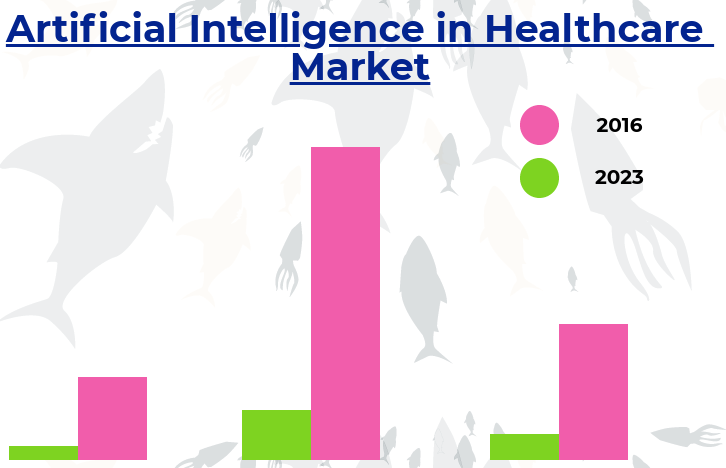
Impact of AI in Healthcare Sector
The power of artificial intelligence can also leverage to help the new physicians, who even do not have much experience in their medical career to actually be able to come on a right conclusion. Baidu research has recently announced that, the results of early tests on its deep learning algorithms indicates that it can help to compute the humans when they identify the breast cancer issues in patient. AI can also help to mitigate the impacts of severe deficit of the qualified clinical staff by taking over some of the duties of diagnostics typically, which are allotted to humans. According to the reports of the Indian Journal of Public Health, India has just 4.8 practicing doctors per 10,000 people. While this ratio is expected to increase to 6.9 doctors per 10,000 people by the year 2030, the minimum doctors-to-patient ratio recommended by the WHO (World Health Organization) is about 1:1000. Apart from delivering the right insights from a huge pool of data, which helps to diagnose a disease, one would be curious about knowing the effect of all this on the cost of healthcare.
Applications of AI in the Healthcare Sector
There are many software industries which have been disrupted by the influx of new technologies in the information age, and healthcare is no different in it. According to the reports of CR insights, about 86% of the healthcare provider companies, life science companies, and technology providers to healthcare are using artificial intelligence services. By the year 2020, these organizations will spend an average of $54 million on AI projects.
Below are some common applications of AI which are changing the face of healthcare sectors now and in future as discussed in detail:
-
Treatment design
AI has created the systems to analyze the data, notes, and reports from patients file, external research and clinical expertise which help them to select the right, individually customized treatment path.
-
Digital consultation
Some of the apps like Babylon use AI to give the medical consultation based on personalized medicine and common medical knowledge. Babylon then provides a recommended action, taking into account the medical history of the patient.
-
Virtual nurses
In the year 2016, Boston children hospital developed an app for Amazon Alexa, which gives the basic healthcare information and advice to the parents for their ill children. This app also helps in answering about the medication of symptoms which whether require a doctor visit or not.
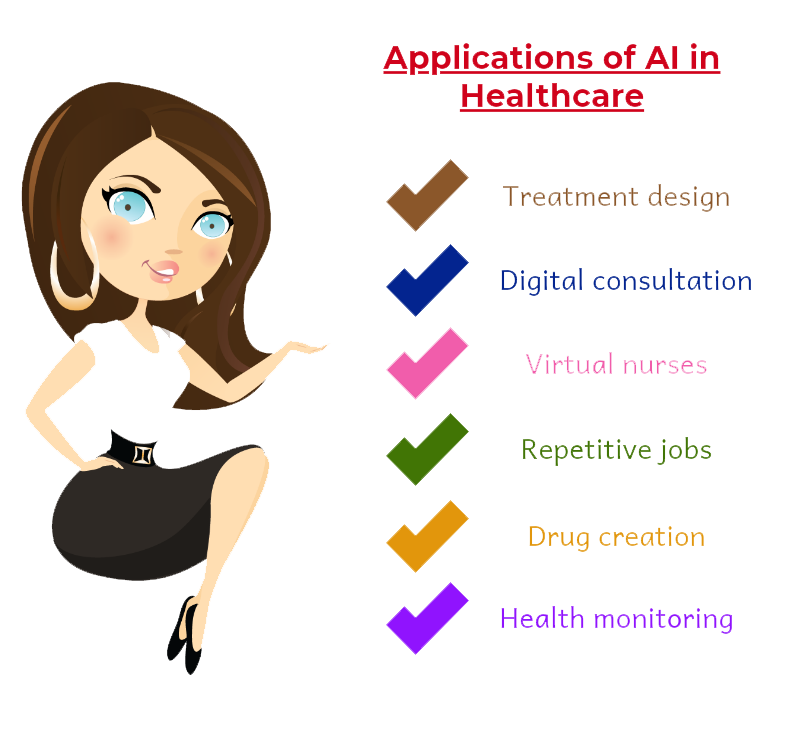
-
Repetitive jobs
With the help of robots, analyzing tests, X-rays, CT scans, data entry, and other mundane tasks can be performed accurately and faster manner. Cardiology and radiology are the two main disciplines where the amount of data to analyze can be overwhelming and time-consuming.
-
Drug creation
To develop pharmaceuticals with the help of clinical trials can take more than a decade and cost much higher in billions of dollars. AI can change this world’s scenario by making this process faster and cheaper.
-
Health monitoring
Wearable devices such as Apple, Fitbit, etc can monitor the heart rate and activity levels. They also send alerts to the user to get more exercise and can help to share the information with the doctors about the patient's condition.
Current Stats of AI in the Healthcare Industry
According to the reports of Frost & Sullivan, AI has the cognitive computing which will generate more than $150 billion in savings for the healthcare industry by the year 2025. Today, only 15 to 20% of the healthcare IT end users have actively used the AI for driving the changes in the health care stream. In the next 3 to 5 years, the adoption of AI will increase drastically, all big thanks to the great IT players like IBM, Microsoft, Google, Salesforce, etc who offers the cost-effective support for these technologies. The most common use of AI on healthcare sector is for improving the medical imaging, personalized medicine, disease production, clinical documentation and also in revenue cycle management. The global healthcare AI market is expected to reach about $6.16 billion, by the year 2020, which is growing at a rate of CAGR of 68.5%, according to recent reports.
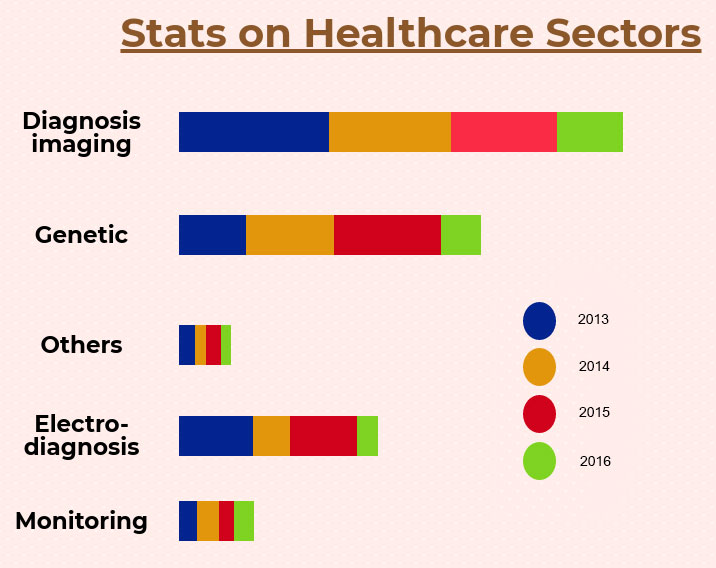
Unites States (U.S.) is called as the global “hub” of healthcare AI, and it performs well all across various maturity metrics, i.e. from investment to end user. China is also dominant in AI space, while Japan and India are growing their AI footprints slowly. Europe has struggled to maintain the stronghold in artificial intelligence due to the region’s more restrictive data policies. New research has also revealed that the healthcare sector is leading the charges when it comes to the development of artificial research and applications. For ex, Google’s DeepMind is revolutionizing the diagnosis by matching the accuracy of medical experts to diagnose 50 sight-threatening eye disease which helps to learn new design drugs. The adoption of AI in healthcare is on increasing and solving the variety of issues for patients, hospitals and the healthcare industry overall.
Implementation of AI in Healthcare
AI has already started making inroads into various industries and healthcare industry is emerging as one of the biggest advantages of AI revolution. Below are some of the key implementation factors of AI in the healthcare industry:
-
Diagnosis
One of the biggest benefits of AI is going to be the diagnosis. The technology can help the industry stakeholders in collating the massive health care data which is available. It is estimated that more than 80% of the health data is unstructured, which makes it invisible to the recent systems, according to the PWC reports. Fortunately, the technology firms like IBM, Google have already come up with solutions. Unlike humans, its decision is all evidence-based and free of cognitive biased which enables the rapid analysis and vast reducing in elimination misdiagnosis.
-
Image analysis
There is a lot of pathological evaluation like microscopy for infections like malaria, differential counts, etc; this all depends upon image analysis in hospitals. Similarly, to find out the abnormalities in the MRI scan, that is also done with the help of manual analysis by a radiologist. In both of these cases, AI helps better in screening the image analysis to help the pathologist or the radiologist to give a faster and more accurate diagnosis to the patients.
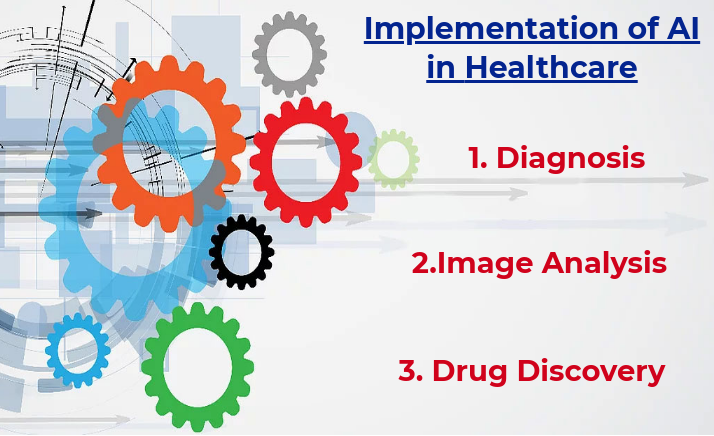
-
Drug Discovery
AI has the option of helping researchers to create drugs as well. One of the most popular names in this field is Atomwise, which uses the deep learning process for reducing the time which is taken to discover new drugs. The 6-year-old company raised more than $51 million in funding, earlier this year. The company also stated that they are offering over 50 molecular discovery programs.
Conclusion
The adoption of digital health in India has been growing slowly and we still have a long way to go in creating this string of disruptive innovation before we tale it global. AI enabled medical car plays the role of informative assistance which helps doctors to gain understanding about the meaningful patterns from data collection and eventually saves the time of doctors and provide unimaginable results & cure to the patients.
Recent Blog

Why Your Business Needs a Mobile App?
06-Dec-2022Related Blogs

How Beacon Technology Impacts Business
27-Apr-2018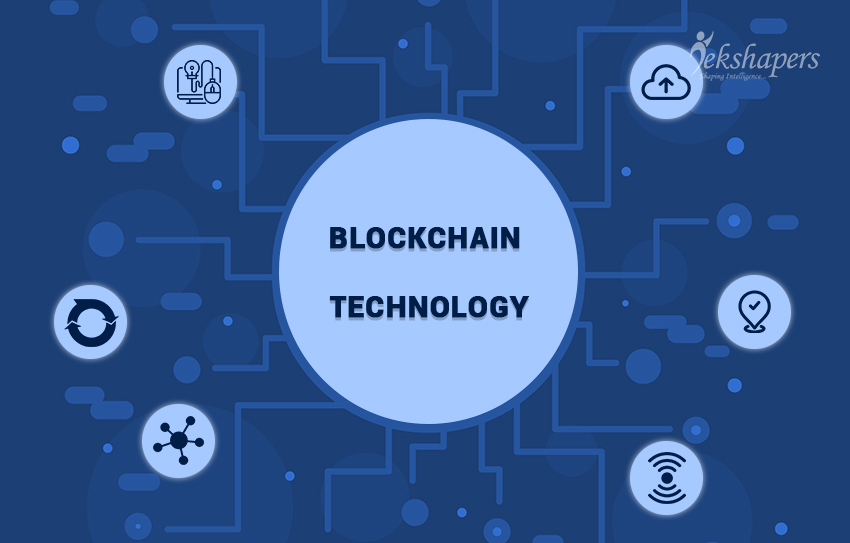
What will be the Future of Blockchain Technology
14-May-2018
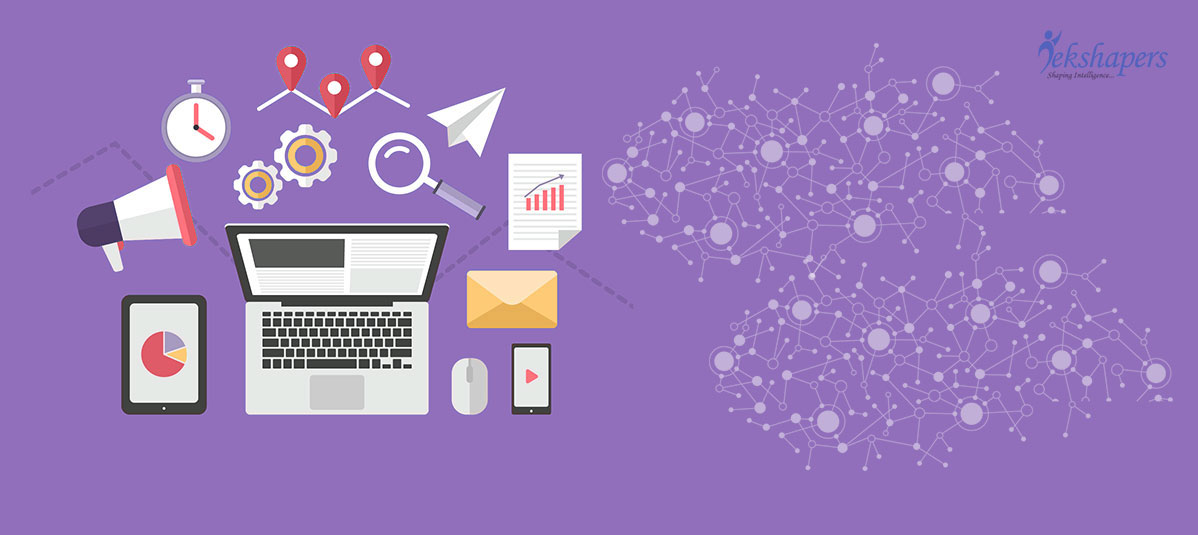
The Complete Guide on Enterprise Data Analytics
17-Aug-2018


